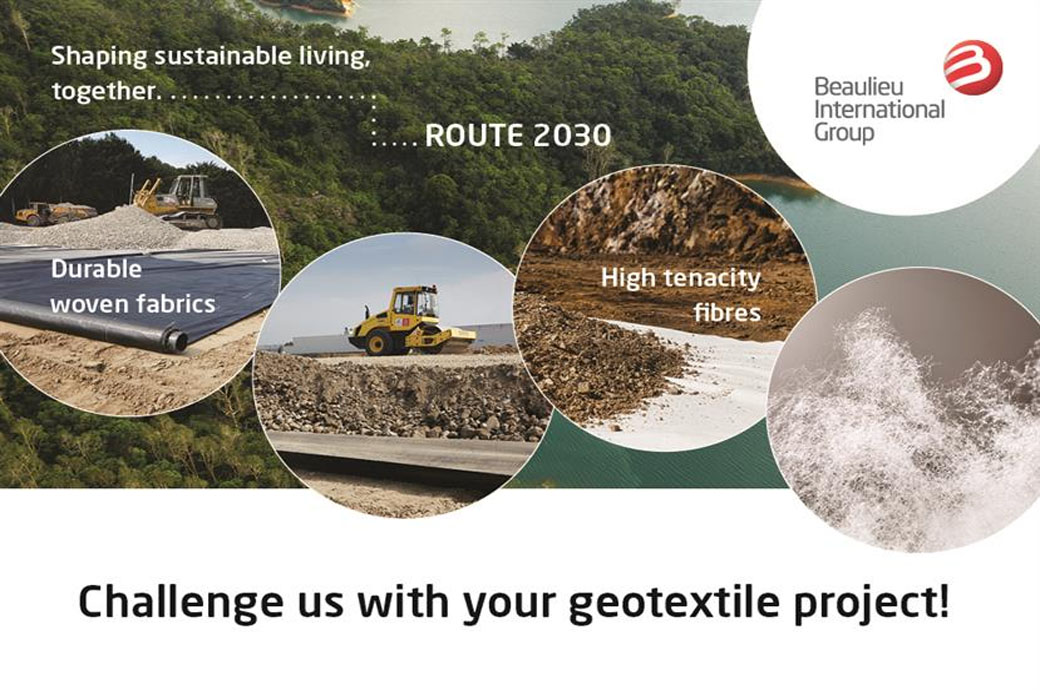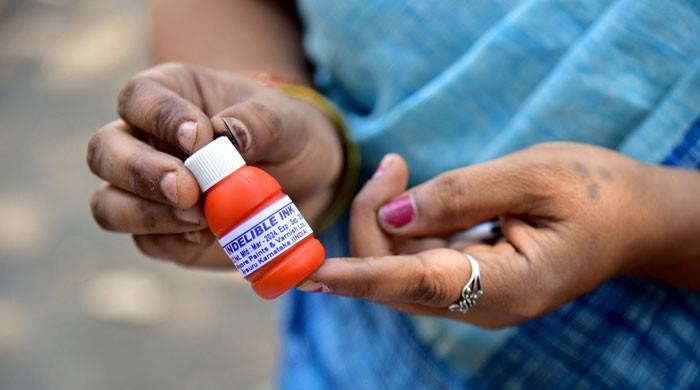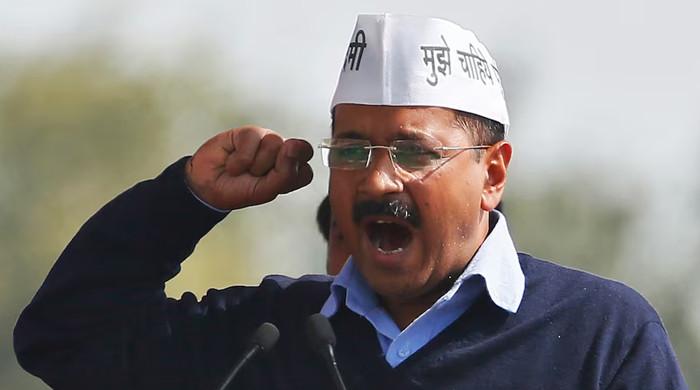[ad_1]
Beaulieu International Group will turn the spotlight on geotextile products with sustainability benefits to support progress in resilient civil engineering projects at the 12th ICG Rome from September 18-21, 2023. Visitors are invited to stand #56 for developments from Beaulieu Fibres International (BFI) and Beaulieu Technical Textiles (BTT) following the roadmap ‘ROUTE 2030, Destination: zero environmental footprint’ of Beaulieu International Group.
Beaulieu International Group will showcase sustainable geotextile products at the 12th ICG Rome conference, emphasizing their commitment to eco- friendly civil engineering solutions.
BFI offers low-carbon footprint PP fibres and bio-attributed MONO-PP.
BTT provides woven geotextiles with reduced carbon footprint and enhanced sustainability benefits.
“12 ICG Rome is bringing the geosynthetics and geotechnical engineering community together to present their recent experiences and developments. As a materials solution provider at the front end of the value chain, our industry role is to come forward with durable solutions as the whole geosynthetics industry has focused on the sustainable use of geosynthetics in a variety of innovative as well as consolidated applications. ‘Geosynthetics, Leading the Way to a Resilient Planet’, is a pertinent conference theme which we are proud to support,” said Jefrem Jennard, sales director fibres.
For manufacturers of nonwoven geotextiles, BFI offers PP fibres with > 25 per cent carbon footprint reduction compared to the European standard PP fibres, generating 1.48 kg CO2/kg PP fibres. A step further is to accelerate the replacement of fossil carbon in engineered fibre applications by choosing its ISCC Plus certified bio-attributed MONO-PP with a negative carbon footprint, the company said in a press release.
For construction projects, nonwoven geotextiles made with high-tenacity HT8 fibres are proven to secure a longer service lifetime and reduce the environmental impact, as they offer high mechanical performance at a reduced weight.
“Geotextiles provide highly versatile, durable and natural resource-saving alternatives in large infrastructure works, and offer durable protection in erosion control and waste/water management projects. We are continuously developing our finished engineering textiles with proven sustainability-enhancing benefits, while taking concrete steps to reduce our own environmental footprint,” Roy Kerckhove, sales director technical textiles, added.
BTT’s woven geotextiles provide a wide range of functions, including separation, filtration, reinforcement and erosion control, and are among the most sustainable in the industry. Depending on weight, the carbon footprint of its woven geotextiles (m²) ranges between 0.37 and 1.40 kg CO2 eq./m². They also minimise the use of natural resources for more sustainable infrastructure development. Case studies such as at the Ostend-Bruges airport highlight significant CO2 reduction on the jobsite by replacing the transport of 960 trucks of gravel with 3 trucks of woven geotextiles, and by extending the runway’s life span.
The ICG launch of its new line Terralys MF woven filtration geotextiles with monofilament boosts the performance of a common solution in building layers that require high water flow rates. High-tenacity extruded polypropylene tapes and monofilaments are interwoven to form dimensionally stable and highly permeable geotextiles. These new filtration geotextiles provide greater resistance to dirt and biological clogging. They allow water to travel freely while reducing soil erosion when employed as a separation and stabilizing layer.
As of September 2023, all PP staple fibres and woven geotextiles will have Environmental Product Declarations (EPD) based on LCAs. Each EPD is an essential tool for communicating and reporting on sustainability performance and helps carbon-conscious customers in their purchasing and decision making. Registered EPDs are globally recognized, publicly available and free to download through EPD Libraries.
The engagement to sustainability is rooted in Route 2030. Sustainability improvement is the key to the long-term strategy of Beaulieu International Group, and it is committed to supporting the geotextiles industry by targeting and accelerating change and communicating the sustainable performance of its products. Beaulieu will steadily accelerate and achieve further milestones.












































